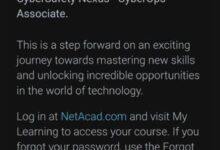Love, Loss, and Lessons in Cybersecurity—Are Your Oldies Protected Online?

When Amaka realized how much Ebuka’s mother meant to him, she knew she had to win her heart. Ebuka’s mother, Mama Nkechi, was a loving soul, but at her age, she was also vulnerable Amaka was determined to win Mama Nkechi’s trust, seeing how deeply Ebuka loved her. However, she quickly noticed how exposed Mama Nkechi was online. Like many seniors, Mama Nkechi enjoyed connecting with family through social media, staying up-to-date with Ebuka’s life, and catching up with friends from her youth. But she was unaware of the lurking dangers on the internet. As Amaka grew closer to Mama Nkechi, she discovered that her vulnerability online wasn’t just a concern—it was a tragedy waiting to happen.
The Message that Changed Everything
One afternoon, Mama Nkechi received a message that looked urgent. A person posing as Ebuka’s friend claimed Ebuka had been in an accident, stranded in another country, and needed immediate financial help. Frightened and worried, she hastily transferred her entire savings. It wasn’t until she spoke with Ebuka later that she realized the truth: she had fallen victim to a cruel scam.
Heartbreak and Healing
When Ebuka found out, he was devastated—not just because of the financial loss, but because he felt he had failed to protect his mother from a world she barely understood. Amaka could feel his pain and guilt, and she felt compelled to act. She helped Mama Nkechi report the incident to the authorities and connected her with a support network for scam victims.
Then, Amaka sat with Mama Nkechi and gently introduced her to the essentials of online safety. They went over privacy settings, how to recognize suspicious messages, and never to respond to unsolicited financial requests.
Protecting Seniors: Practical Tips for Families
If you have seniors in your life, here are some critical steps to protect them from similar incidents:
- Educate on Phishing Scams
Teach seniors to verify messages claiming urgency, particularly those asking for money. Always double-check with family members first. - Privacy Settings
Guide them through social media privacy settings to control who can view their posts and information. - Password Management
Encourage using strong passwords and a password manager, if possible. Remind them not to use easily guessed information, like birthdays, which are often public on their profiles. - Two-Factor Authentication
Help them set up two-factor authentication (2FA) on all important accounts. This extra layer makes it much harder for scammers to access accounts, even if they know the password. - Monitor Financial Transactions
Offer to help keep an eye on unusual financial transactions with their bank’s fraud alert system or similar service.
Real-Life Examples
Cybercriminals often target seniors because they may be less familiar with modern tech traps. In the infamous case of the “grandparent scam,” fraudsters posed as grandchildren needing money for emergencies. This scam cost U.S. seniors an estimated $41 million in a single year.
Another high-profile scam targeted elderly users of an investment website, where fraudsters convinced them to share their personal banking details, stealing thousands of dollars.
Embracing Cybersecurity for the Ones We Love
Ebuka and Amaka’s story serves as a reminder that while love is a powerful bond, protecting the people we care about requires proactive steps in today’s digital age. Let’s empower the older generation with tools, awareness, and support to navigate safely and avoid the dangers lurking online.
Grab your copy of Encrypted Heart now on Selar here and discover more stories where love and cybersecurity intersect in unforgettable ways.
Our parents and grandparents deserve the best of what technology has to offer—without the risks. Let’s work together to make sure they can enjoy the internet safely, building memories and connections with confidence.

























Educative and encouraging